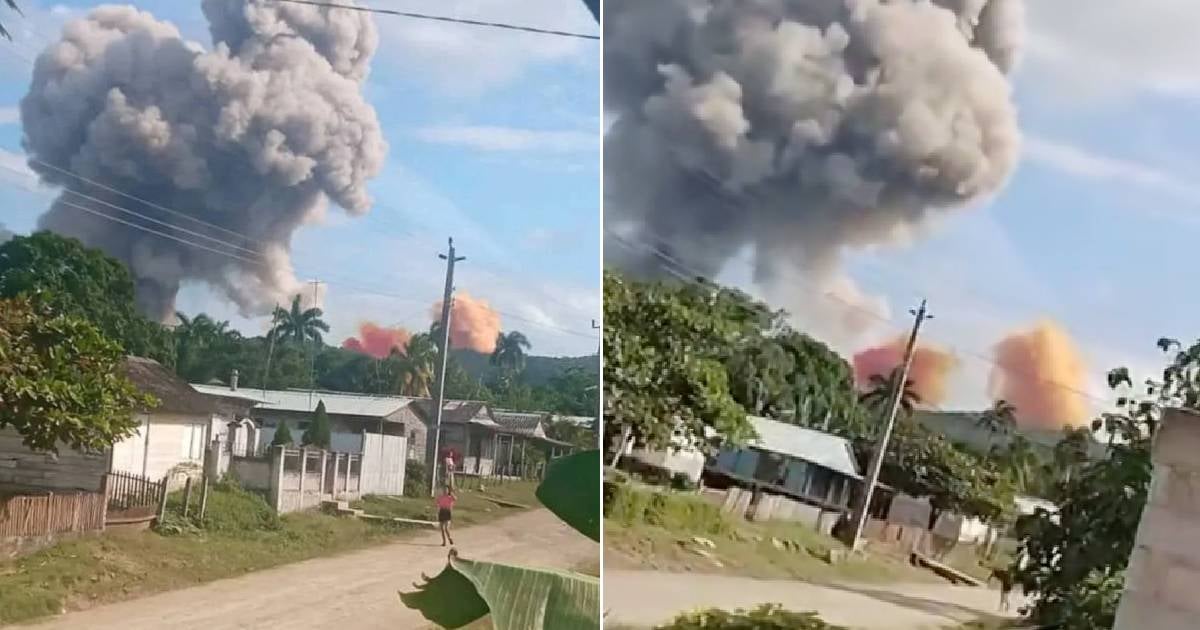The recent explosion at a weapons and ammunition storage facility in the Melones community, located in Rafael Freyre municipality, Holguín, has sparked an outcry against the Revolutionary Armed Forces (FAR) and the Mandatory Military Service (SMO) in Cuba. In response, the regime is attempting to defend its stance.
Despite the tragic event that has left 13 individuals missing, including 9 young recruits, spokespeople such as Javier Gómez Sánchez and Michel E. Torres Corona, the host of the state-run program "Con Filo," have stepped forward to advocate for the contentious SMO on the island.
Defense Amidst Tragedy
In a social media post, Gómez Sánchez conveyed his condolences for the loss of life, describing the incident as "an irreparable blow to their families" and "a day of mourning for Cuba." Nevertheless, he seized the opportunity to criticize those who have pointed out the deficiencies and dangers of Cuba's military system.
"It is unscrupulous to exploit such a sensitive event to denigrate our country's historical need to prepare for self-defense," Gómez Sánchez argued. He asserted that Cuba's geopolitical realities have compelled the nation to allocate resources and lives to ensure its defense.
Public Support for a Controversial System
Similarly, Michel E. Torres Corona echoed this sentiment, voicing his support for the SMO amid the renewed debate about the compulsory nature of military service in Cuba, particularly regarding the safety conditions and equipment of military storage facilities and bases.
For many critics, the accident highlights the repercussions of an outdated and under-resourced system where inexperienced young individuals face unnecessary risks.
International and Domestic Criticism
Internationally, the statements from these regime spokespersons are perceived as an attempt to justify the SMO amid growing social discontent within the island, where many sectors question the prioritization of militarization over essential social needs like healthcare, education, and food security.
As the nation mourns, various voices both inside and outside Cuba are calling for a profound reconsideration of policies that, according to critics, place Cuban youth in needless danger. Meanwhile, the families of the victims and the missing await clear explanations regarding the circumstances of the explosion, as the government persists in its narrative asserting the necessity of military service as a cornerstone of national defense.
Key Questions Regarding Cuba's Military Service and Recent Incident
What led to the criticism of Cuba's military service system?
The criticism arose from an explosion at a military storage facility in Holguín, which resulted in several missing recruits, highlighting the risks and deficiencies of the outdated military system.
How did Cuban officials respond to the explosion incident?
Cuban officials, including spokespeople like Javier Gómez Sánchez and Michel E. Torres Corona, defended the military service system, emphasizing the historical need for national defense despite the tragedy.
What are the international perceptions of Cuba's defense of its military policies?
Internationally, the defense of military policies is seen as an attempt to justify the system amidst growing social unrest and criticism regarding the prioritization of militarization over social needs.
